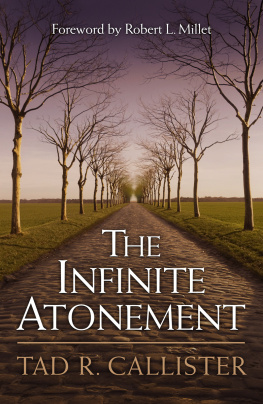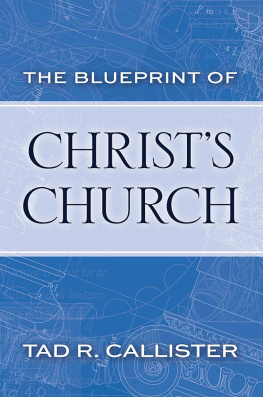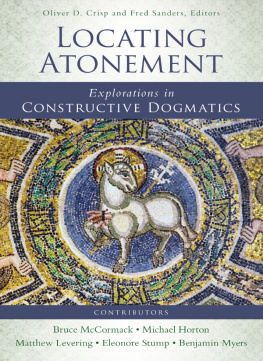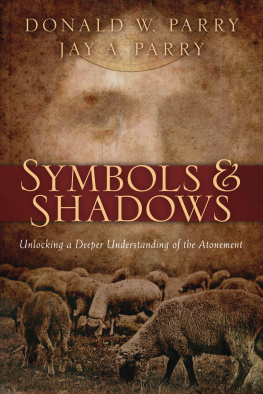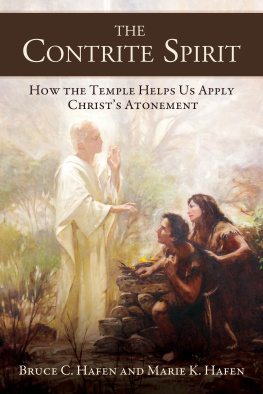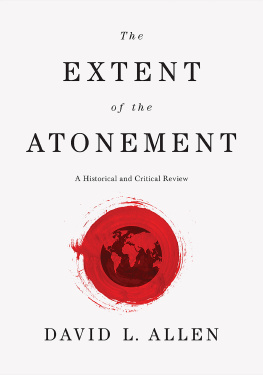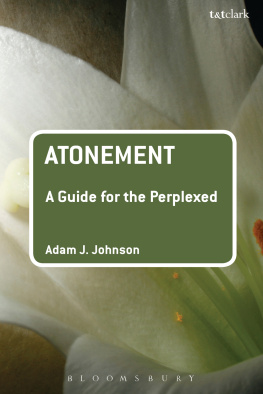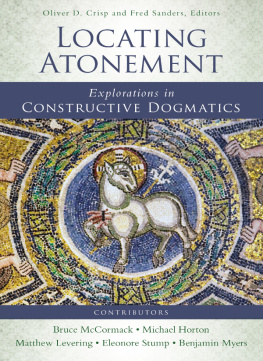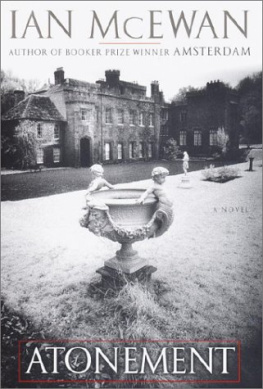The Infinite Atonement
Tad R. Callister
2000 Tad R. Callister.
All rights reserved. No part of this book may be reproduced in any form or by any means without permission in writing from the publisher, Deseret Book Company, P.O. Box 30178, Salt Lake City Utah 30178. This work is not an official publication of The Church of Jesus Christ of Latter-day Saints. The views expressed herein are the responsibility of the author and do not necessarily represent the position of the Church or of Deseret Book. Deseret Book is a registered trademark of Deseret Book Company.
Foreword
Foreword
Some things simply matter more than others. Even some doctrines, though interesting and even fun to discuss, must take a back seat to more fundamental and foundational doctrines. It is just so with the Atonement of Jesus Christ. The Atonement is the central act of human history, the pivotal point in all time, the doctrine of doctrines. Everything we do and everything we teach should somehow be anchored to the Atonement. Elder Boyd K. Packer testified: "Truth, glorious truth, proclaims there is... a Mediator.... Through Him mercy can be fully extended to each of us without offending the eternal law of justice. This truth," he continued, "is the very root of Christian doctrine. You may know much about the gospel as it branches out from there, but if you only know the branches and those branches do not touch that root, if they have been cut free from that truth, there will be no life nor substance nor redemption in them" (Conference Report, April 1977, 80).
This is no doubt why the Prophet Joseph Smith spoke of the resurrection and Atonement as the fundamental principles of our religion, with "all other things which pertain to our religion" as appendages (Teachings of the Prophet Joseph Smith, 121). An appendage is something extra, something ancillary, something attached to the body. Such remarkable doctrines as the premortal and postmortal existences of man, salvation for the dead, and the knowledge of various degrees of glory hereaftersuch doctrines add vitality and substance to our knowledge of the Father's plan and provide answers to age-old questions in the religious world, but they have meaning for us only because of the mediation and Atonement of Jesus Christ.
Because of this, because the Atonement is at the heart and core of all we do, it is vital that we study it, understand it, and apply it. Elder Bruce R. McConkie offered the following sobering counsel: "Now, the atonement of Christ is the most basic and fundamental doctrine of the gospel, and it is the least understood of all our revealed truths. Many of us have a superficial knowledge and rely upon the Lord and his goodness to see us through the trials and perils of life. But if we are to have faith like Enoch and Elijah we must believe what they believed, know what they knew, and live as they lived. May I invite you to join with me in gaining a sound and sure knowledge of the Atonement. We must cast aside the philosophies of men and the wisdom of the wise and hearken to that Spirit which is given to us to guide us into all truth. We must search the scriptures, accepting them as the mind and will and voice of the Lord and the very power of God unto salvation" (Conference Report, April 1985, 11).
Fortunately, there is not an isolated chapter in holy writ to which we turn in order to learn all that we need to know about the Atonement. Wisely, the Lord has spoken often and regularly with his covenant spokesmen concerning this central verity, and thus the doctrinal refrain of redemption in Christ runs throughout the whole of scripture. While Lehi and Jacob offer a sublime treatment of the Atonement, we must also turn to John and Paul and Peter and Benjamin and Alma and Amulek and Isaiah to learn particulars. The Atonement is the burden of all scripture.
Because there is such need to focus our hearts and minds on this central message, I was delighted to discover a book like the present work that focuses so clearly and speaks so forcefully of the Atonement. In organizing and writing this volume, Tad Callister is to be commended for a significant labor, in fact what must have been for him a great labor of love. I find this book to be one of the most complete treatments of the Atonement that I know of anywhere. The flow of the book is systematic and orderly, the writing crisp and penetrating, and the doctrine sound and solid. He has been true to the intent of the ancient seers and particularly loyal to the underlying message of the Book of Mormon and the prophets of the Restoration, without which we would be extremely limited in our knowledge of the Atonement.
It is not easy to strike the delicate balance between a work that is intellectually enlarging and spiritually strengthening, to create something that provides an even deeper reason for the hope within us (1 Peter 3:15). Every once in a while a book comes along that does just thatthat stretches the mind and soothes and settles the heart. Brother Callister's work has done that for me. My initial reading of the book found me in deep reflection on a particular doctrinal matter, and within minutes I was busily cross-referencing selected passages whose connection to one another I had not seen before.
After instructing the Nephites (and us as readers of the Book of Mormon) about the need to be reconciled to God through Christ, Jacob inquired: "And now, beloved, marvel not that I tell you these things; for why not speak of the atonement of Christ, and attain to a perfect knowledge of him, as to attain to the knowledge of a resurrection and the world to come?" (Jacob 4:12). Indeed, why not? To be sure, coming to a perfect knowledge of Christ and the Atonement is a lofty goal, one that we probably will not fully reach in this life. But we are called upon in mortality to pursue the course that leads to it, and that course involves searching the scriptures, reading and pondering the teachings of the prophets, and receiving divine direction and insight from that God who delights to honor those who serve him in righteousness and truth (D&C 76:5).
The scriptures. The prophets. Personal revelation. These are the principal tools by which we build our house of faith. And we are assisted in the building process through seeking out of the best books words of wisdom. We thereby "seek learning, even by study and also by faith" (D&C 88:118). I trust that the reader will conclude, as I have, that this book is worthy of repeated study, first because it is so well written, but, more important, because it addresses a subject,the subject, that is of everlasting import to every son and daughter of God.
Robert L. Millet
Dean of Religious Education and
Professor of Ancient Scripture,
Brigham Young University
Chapter 1
What Is the Significance of the Atonement?
A Doctrine for All Seasons
A person studying the Atonement is somewhat like the man who retreats to his mountain cabin to enjoy the scenery. If he looks out the window to the east, he will see the snow-capped peaks of the Rockies; but if he fails to examine the view on the west, he will miss the crimson-streaked sunset on the horizon; if he neglects the scene to the north, he will never see the shimmering emerald lake; and if he bypasses the window on the south, he will fail to witness the wild flowers in all their brilliant glory, dancing in the gentle mountain breeze. Beauty besets him in every direction. So it is with the Atonement. Regardless of our vantage point, it is glorious to behold. Every principle underlying it, every consequence flowing from it rewards our intellect, animates our emotions, and enlivens our spirit. It is a doctrine for all seasons.

